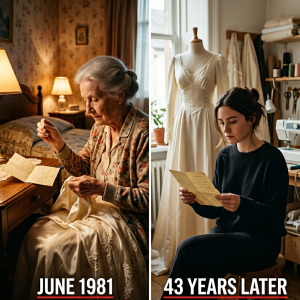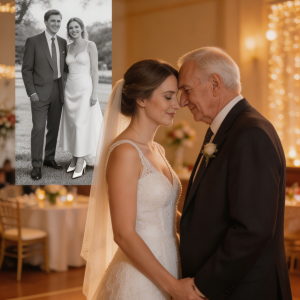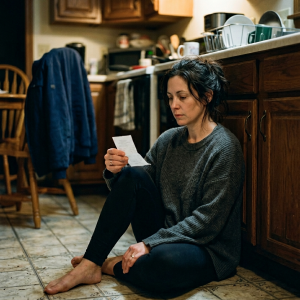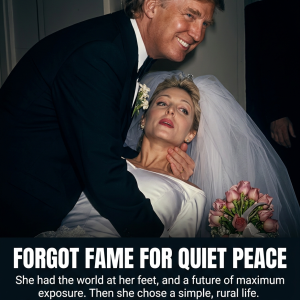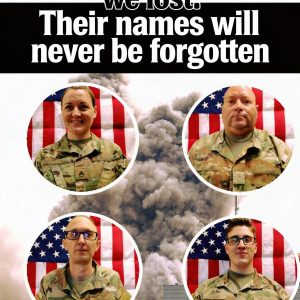People clustered around the statue, snapping selfies. Grinning. Throwing peace signs. Nearby, a couple murmured tense words, glancing up as if the stone soldier might judge them. But my eyes snagged on someone else.
The man in the wheelchair sat slumped, shoulders bowed like the granite weight above pressed directly onto him. His jacket cuff was frayed. The cap perched on his head simply read VETERAN – a stark label he hadn’t chosen. Beside him, a dog with a grizzled muzzle drank carefully from a paper cup he held out like fine china. No leash. No orders. Just quiet trust.
I lingered longer than I’d planned, coffee cooling in my grip, feeling foolish just watching. He never lifted his gaze. Never asked for spare change. He just tipped the cup gently, making sure the dog drank first.
The realization hit me like a sucker punch. This monument stood for honor. Stone and engraved names and solemn yearly speeches. Yet here sat a man who’d truly served… forgotten in its shadow.
A woman breezed past, dropping a dollar onto his lap without breaking stride. The bill clung to his worn trousers. He didn’t flinch. The dog did—turning his head, his eyes meeting mine as if he sensed my stare.
That’s what finally nudged me forward. “Sir,” I began, my voice feeling too loud in the quiet space around him. “Can I… get you anything?”
He gave a single, almost imperceptible nod. Cleared his throat, the sound like dry leaves scraping stone. “A name,” he rasped. “For him.”
I blinked. “For your dog?”
A faint, painful ghost of a smile touched his lips. “Been with me longer than most. Pulled me back from the edge more times than I recall. Never gave him a name. Didn’t feel I deserved to.”
I crouched slowly, letting the dog sniff my knuckles. He was old, his muzzle frosted gray, but his eyes held a keen, gentle loyalty.
“Why now?” I asked softly. “Why name him today?”
His gaze drifted up to the monument. “Today’s the day I lost my squad. Every one. Same moment. Same damned sandstorm. No goodbyes.” He looked back at the dog. “But this one… he walked out of that desert with me. Only thing that did. Figured silence wasn’t good enough anymore.”
Words failed me. I glanced back at the memorial; suddenly, it felt distant. Cold. Like it couldn’t touch the very souls it commemorated.
“I’m Michael,” I offered. “Maybe… maybe I can help.”
He nodded slowly. “Roy. Name’s Roy.”
Roy’s voice was gravelly, worn thin by too many tales he was tired of telling. Yet it carried a bedrock solidity. When he spoke, it felt like something mattered.
He reached into a faded canvas bag and pulled out a creased, yellowing photograph. Five young men stood grinning beside a Humvee, arms slung over each other’s shoulders. “My brothers,” he said, a roughness catching in his throat. “Our last good day.”
The dog settled beside him, head resting on Roy’s knee, as if he knew the names. As if he remembered the echoes of their laughter.
“He was always there?” I asked.
Roy nodded. “Found him on patrol. Skin and bones, barely breathing. Broke regs taking him in. He stayed. Even through the fire.”
A heavy silence fell. Tourists flowed past, cameras clicking, utterly unaware. Some glanced at Roy, then quickly away, as if guilt flickered brighter than kindness.
“Tell me about the fire,” I said gently.
Roy studied me for a long moment. Then, with a sigh that seemed to carry the weight of years, he began.
His words painted a nightmare. Ambush. Their vehicle exploding. Roy trying desperately to drag his brothers free, the flames swallowing them whole. The burns he took trying. And the dog—who’d hidden beneath the wreckage—biting through Roy’s burning vest strap and dragging him clear.
“He shouldn’t be here,” Roy finished, his voice raw. “Neither should I. But here we are.”
I looked at the dog. He tilted his head, those intelligent eyes seeming to hold the entire weight of that desert.
“I think,” I said quietly, the idea forming as I spoke, “he already has a name.”
Roy lifted an eyebrow.
“Honor,” I said. “He’s your Honor. He carries them with you, doesn’t he?”
Roy’s eyes glistened. He blinked hard, looking away, jaw tight. After a moment, he whispered, “Yeah. That’s a good name. Honor.”
I pulled out the untouched sandwich from my pocket. Broke it, handed half to Roy, then knelt and offered the rest to Honor. They both accepted it like a banquet.
I thought that was it. A connection made. A quiet offering. But Roy looked at me, a flicker of something else in his eyes. “You got somewhere you need to be?”
“Not really,” I said. “Why?”
“Feel like walking with us?” He gestured to his chair. “Well. Rolling, anyway.”
So I walked. He rolled. Honor padded steadily beside the wheels. And Roy talked.
He didn’t talk like someone unloading grief. More like someone carefully placing fragments of his life along the path, like stones marking a trail he hoped someone might follow.
He spoke about Georgia backroads, about dreaming of being a mechanic before the draft notice came. About letters to a girl named Samantha, who stopped writing after his third tour.
“Don’t blame her,” he said, the wheels whispering on the pavement. “War reshapes you. Sometimes into someone who doesn’t fit anywhere anymore.”
I didn’t offer platitudes. I just listened. That, it seemed, was the rarest gift he needed.
We ended up at a small, tucked-away park behind the library. Quiet. Dappled shade. Roy parked near a bench. I sat. Honor collapsed into the cool grass like he’d earned every blade.
“You got family?” Roy asked.
“Just a brother in Chicago. We don’t talk much.”
Roy nodded slowly. “Funny how we fight so hard to survive, then forget how to live.”
The truth of it resonated deep in my chest.
I offered lunch. He refused, saying he had enough. But his shoes were falling apart, the soles worn paper-thin.
I excused myself, stepped away, and called a friend who ran a local shelter. Told her about Roy. Told her about Honor. “Half an hour,” she said. “I’ll be there.”
When I returned, Roy was scratching Honor’s ears, staring into the green canopy.
“You don’t gotta stay,” he said, not looking at me. “I’m used to folks moving on.”
“Well,” I replied, “maybe it’s time someone didn’t.”
When the shelter van arrived, Roy stiffened. “I ain’t going to no home,” he stated, iron in his voice. “I’m not leaving him.”
“You’re not,” I assured him. “They’ve got a room. Back of the place. Private. Lets you keep Honor. Hot meals. Just give it one night. For Honor.”
Roy didn’t answer immediately. He looked down at the dog. “You trust ’em?” he murmured. Honor licked his hand.
“That’s a yes,” I said.
He let out a long breath. “Alright. One night.”
One night became a week.
A week became a month.
I visited every other day. Sometimes we talked. Sometimes we just sat in the quiet. But the silence wasn’t heavy now. It was peaceful.
Roy started fixing things around the shelter. Talking to other vets who drifted through. Honor became the unofficial therapy dog, offering quiet comfort with a nudge of his head.
One afternoon, I brought Roy a new jacket. Simple, sturdy. Inside, I’d had it embroidered: “For the man who named Honor.”
He ran his thumb over the stitching, didn’t speak. Just squeezed my shoulder, his eyes saying everything.
Three months later, Roy passed in his sleep. Heart failure, they said. Peaceful. Honor was curled tight against him.
They asked me about the dog.
I didn’t hesitate. “He comes home with me.”
Honor lives with me now. He still likes sitting by the war memorial on Sundays. I let him. Maybe he remembers. Maybe he’s waiting for someone else to see.
People sometimes stop, pat his head. “What’s his name?” they ask.
And I always say, “This is Honor. He belonged to a hero.”
They smile. Nod. They don’t always understand.
But that’s okay.
Because Honor does.
And me? I see things differently now.
We don’t get to choose who saves us, or who we save. But sometimes, if we’re lucky, we get to hand someone back their name. Or give them one they can hold onto with pride.
So the next time you pass someone sitting quiet and unseen… don’t just walk by.
You never know whose story is waiting at the edge of your path.
